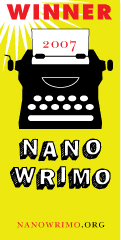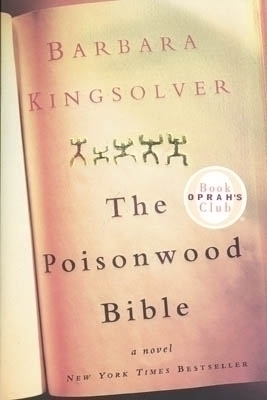Friday, January 18, 2008
On Optimism
It seems to me that since I adopted Optimism as my outlook on life, replacing the Pessimism that had ill-served me in my teenage years, I have become happier and more accepting of the Human condition, whereas previously I wanted nothing to do with it. This did not occur because I read The Secret by Rhonda Byrne, but under very strange circumstances where I became so annoyed with my lot in life (having to stay at school while my friends went to their University placings) that I most likely became fed up with my choice of philosophy.
"Why was I here, if I was doomed to go through another year of school with a bunch of idiots who wouldn't appreciate literature if a radioactive manuscript of Shakespeare's Julius Caesar stabbed them in the back?"
This was the question I asked myself, and I pondered the answer in a conversation on Windows MSN Messenger with a friend (as you may recall, this was how I came across the meaning of what being a man was, in a previous epiphany) but instead of Angus, my other friend Tom was the one who inspired me to go on.
I considered his argument. There were indeed students in the new Year 12 who were not as uncultured as I feared. The trouble was that those students tended to be very busy with their studies, as I should have been too. Then it occurred to me that instead of fearing the mindless curriculum of the courses I had to take, I would see what I could learn from these courses that might be useful to a young Author like myself.
I found a safe haven in Genre Theory. Learning how genre worked was more interesting than it sounded, and as a Fantasy Author, this was crucial information I needed to know. I would have to read as many books in a genre as well as many other genres to remain fresh and in touch with the concerns of modern Humanity... and I was up to the challenge, despite the large pile of books I had to read for my studies. I calculated that the only solution to my problem was to:
a) Read these books instead of gazing upon them and going into a Lovecraftian madness
b) Accept that it is possible for a great work of literature to exist without dragons, Elves, Dwarves, or Faeries explicitly mentioned in the text
c) Know that the more I read, the more I would learn about writing, and the more I would learn about writing, the more I would create quality prose (and pass my exams)
d) Recognise that the Human experience came not from a literal interpretation of the world and the imagination, but the use of imagination to bring excitement into mundane everyday things. Douglas Adams, in The Hitchhiker's Guide to the Galaxy, wrote something along the lines of "can't we just enjoy a nice garden without having to believe there are fairies at the bottom of it too?". Taken literally, this is a rejection of imagination and wonder. Taken as the metaphor it is, it is multi-layered. It seems to me that it is a metaphor for how science, in Douglas Adams's point of view, does not destroy the beauty of nature by explaining how it works, but enhances our appreciation and understanding of how complicated the wonders of nature really are, and our enjoyment of a garden will not be taken away by the absence of fairies. I am also aware that Adams was friends with Richard Dawkins, the renowned/reviled atheist superstar scientist, and such a friendship most likely resulted in a shared interest in secular science. In Hitchhiker's, he seems to have created a tale that is both funny, and reflective of his scientific, secular world-view, that also contains a wonderful affirmation of the fact that science is compatible with the imagination, for without it, Humans cannot conceive the many developments in technology we come up with every day. Therefore, the quotation contains so much imaginative and intellectual discussion, in one brief sentence, that to take it as a literal forsaking of the imagination would be an insult to the memory of the late Douglas Adams. So here we learn that science does not necessarily mean the abolition of imagination, though I could point out many cases where scientists reject imagination, Adams is appealing to both a scientific argument and the nature of Human beings to tell stories. I might not agree with Adams's friend Richard Dawkins's arguments against religion, however Adams presents his world view in a much friendlier and less hostile manner. So I give him a pat on the back for presenting a view without preaching (if the Only Convert to Atheism could be described as doing such a thing) to the reader. Or lecturing, to be more respectful to Adams's lack of belief in God. If he was alive I would ask him to give my religious beliefs the same respect, naturally.
* * * * *
After accepting my studies I became happier and more productive. When I was a Pessimist, I was lucky if I typed 1000 words for a story in a week. Since becoming an Optimist, I have continued to produce nearly 2000 words every day for the past four days. If that's not an endorsement you'd believe, I don't know what else I could do to change your mind.
I've been sleeping better, the usual insomnia that plagues my nights seems to be easing. Rather than always not having enough sleep, I always wake up refreshed (I usually have to walk a bit of the sleep off before this kicks in, like anybody does).
I've had more hope for the future. Having a plan and a vision for what I want to do in the future hasn't made me a millionaire yet, but keeping in mind not everybody needs to be a millionaire, just enough to live comfortably and a full life, I have been more content with my circumstances than ever before. My dreams of becoming a full time Author after I leave school seem actually achievable, as I work for my dreams and put them into practice every day. Thus I can taste the reality of a growing and living manuscript instead of a mocking, half finished pipe-dream.
I highly recommend Optimism, it's not a religious cult that will take all your money, nor is it a fad. It's a philosophy that will improve your lifestyle to degrees immeasurable by Pythagoras himself. Do try it.
- Jacob Martin
AKA "Jake of All Trades"
"Why was I here, if I was doomed to go through another year of school with a bunch of idiots who wouldn't appreciate literature if a radioactive manuscript of Shakespeare's Julius Caesar stabbed them in the back?"
This was the question I asked myself, and I pondered the answer in a conversation on Windows MSN Messenger with a friend (as you may recall, this was how I came across the meaning of what being a man was, in a previous epiphany) but instead of Angus, my other friend Tom was the one who inspired me to go on.
I considered his argument. There were indeed students in the new Year 12 who were not as uncultured as I feared. The trouble was that those students tended to be very busy with their studies, as I should have been too. Then it occurred to me that instead of fearing the mindless curriculum of the courses I had to take, I would see what I could learn from these courses that might be useful to a young Author like myself.
I found a safe haven in Genre Theory. Learning how genre worked was more interesting than it sounded, and as a Fantasy Author, this was crucial information I needed to know. I would have to read as many books in a genre as well as many other genres to remain fresh and in touch with the concerns of modern Humanity... and I was up to the challenge, despite the large pile of books I had to read for my studies. I calculated that the only solution to my problem was to:
a) Read these books instead of gazing upon them and going into a Lovecraftian madness
b) Accept that it is possible for a great work of literature to exist without dragons, Elves, Dwarves, or Faeries explicitly mentioned in the text
c) Know that the more I read, the more I would learn about writing, and the more I would learn about writing, the more I would create quality prose (and pass my exams)
d) Recognise that the Human experience came not from a literal interpretation of the world and the imagination, but the use of imagination to bring excitement into mundane everyday things. Douglas Adams, in The Hitchhiker's Guide to the Galaxy, wrote something along the lines of "can't we just enjoy a nice garden without having to believe there are fairies at the bottom of it too?". Taken literally, this is a rejection of imagination and wonder. Taken as the metaphor it is, it is multi-layered. It seems to me that it is a metaphor for how science, in Douglas Adams's point of view, does not destroy the beauty of nature by explaining how it works, but enhances our appreciation and understanding of how complicated the wonders of nature really are, and our enjoyment of a garden will not be taken away by the absence of fairies. I am also aware that Adams was friends with Richard Dawkins, the renowned/reviled atheist superstar scientist, and such a friendship most likely resulted in a shared interest in secular science. In Hitchhiker's, he seems to have created a tale that is both funny, and reflective of his scientific, secular world-view, that also contains a wonderful affirmation of the fact that science is compatible with the imagination, for without it, Humans cannot conceive the many developments in technology we come up with every day. Therefore, the quotation contains so much imaginative and intellectual discussion, in one brief sentence, that to take it as a literal forsaking of the imagination would be an insult to the memory of the late Douglas Adams. So here we learn that science does not necessarily mean the abolition of imagination, though I could point out many cases where scientists reject imagination, Adams is appealing to both a scientific argument and the nature of Human beings to tell stories. I might not agree with Adams's friend Richard Dawkins's arguments against religion, however Adams presents his world view in a much friendlier and less hostile manner. So I give him a pat on the back for presenting a view without preaching (if the Only Convert to Atheism could be described as doing such a thing) to the reader. Or lecturing, to be more respectful to Adams's lack of belief in God. If he was alive I would ask him to give my religious beliefs the same respect, naturally.
* * * * *
After accepting my studies I became happier and more productive. When I was a Pessimist, I was lucky if I typed 1000 words for a story in a week. Since becoming an Optimist, I have continued to produce nearly 2000 words every day for the past four days. If that's not an endorsement you'd believe, I don't know what else I could do to change your mind.
I've been sleeping better, the usual insomnia that plagues my nights seems to be easing. Rather than always not having enough sleep, I always wake up refreshed (I usually have to walk a bit of the sleep off before this kicks in, like anybody does).
I've had more hope for the future. Having a plan and a vision for what I want to do in the future hasn't made me a millionaire yet, but keeping in mind not everybody needs to be a millionaire, just enough to live comfortably and a full life, I have been more content with my circumstances than ever before. My dreams of becoming a full time Author after I leave school seem actually achievable, as I work for my dreams and put them into practice every day. Thus I can taste the reality of a growing and living manuscript instead of a mocking, half finished pipe-dream.
I highly recommend Optimism, it's not a religious cult that will take all your money, nor is it a fad. It's a philosophy that will improve your lifestyle to degrees immeasurable by Pythagoras himself. Do try it.
- Jacob Martin
AKA "Jake of All Trades"
Subscribe to:
Post Comments (Atom)






No comments:
Post a Comment